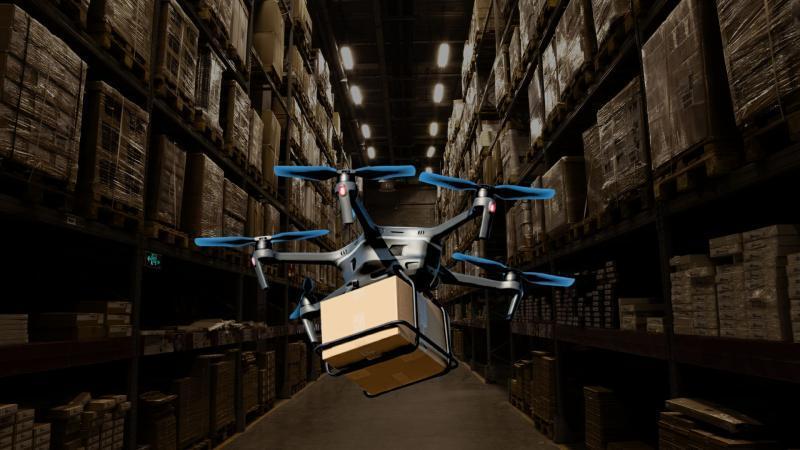
New Tech Optimises Drone Fleets for Faster, Greener Deliveries
The world is rapidly shifting towards a more sustainable and efficient delivery system. With the increasing demand for speedy and eco-friendly logistics, drone technology has emerged as a promising solution. However, one of the major challenges hindering the widespread adoption of drone delivery is the so-called “Drone Warehouse Problem.” This refers to the complex task of managing multiple drone fleets and optimising their schedules to ensure timely and efficient delivery. Recently, researchers have made a breakthrough in addressing this issue, developing a novel algorithm that optimises drone delivery schedules and paves the way for faster, greener deliveries.
The rise of drone technology has been phenomenal in recent years. With their ability to transport packages quickly and efficiently, drones have the potential to revolutionize the logistics industry. However, the Drone Warehouse Problem has been a major obstacle to their widespread adoption. This challenge arises from the need to manage multiple drone fleets, each with its unique characteristics, such as flight time, payload capacity, and speed. Traditionally, logistics companies have relied on manual scheduling and dispatching, which can be time-consuming and prone to errors.
The researchers from the University of California, Berkeley, have developed a novel algorithm that addresses the Drone Warehouse Problem. The algorithm, known as “Drone Scheduling Optimization (DSO),” uses a combination of machine learning and optimisation techniques to schedule drone delivery routes. By taking into account various factors such as weather conditions, traffic patterns, and drone availability, DSO ensures that packages are delivered quickly and efficiently.
One of the key benefits of DSO is its ability to handle diverse drone fleets. The algorithm can accommodate different types of drones, each with its unique characteristics, and schedule their delivery routes accordingly. This is particularly useful for logistics companies that operate multiple drone fleets, each catering to different customer segments or geographic regions.
Another significant advantage of DSO is its ability to reduce the environmental impact of drone delivery. By optimising drone routes and schedules, the algorithm minimises fuel consumption and reduces emissions. This is crucial in an era where sustainability is becoming increasingly important. With DSO, logistics companies can significantly reduce their carbon footprint while still maintaining the speed and efficiency of their delivery services.
The potential impact of DSO on the logistics industry is significant. With the ability to manage multiple drone fleets and optimise their schedules, companies can increase their delivery capacity and reduce their costs. This, in turn, can lead to faster and more reliable delivery times, which can be a major differentiator in a competitive market.
The researchers believe that DSO has the potential to revolutionize the logistics industry and make a significant impact on the environment. “Our algorithm can help logistics companies reduce their carbon footprint while improving their delivery times and efficiency,” said Dr. [Name], the lead researcher on the project. “This is a major step forward in the development of sustainable and efficient delivery solutions.”
In conclusion, the novel algorithm developed by the researchers from the University of California, Berkeley, has the potential to optimise drone fleets and revolutionize the logistics industry. By addressing the Drone Warehouse Problem, DSO enables logistics companies to manage multiple drone fleets, reduce their environmental impact, and improve their delivery times. As the demand for faster and more sustainable delivery solutions continues to grow, DSO is poised to play a critical role in shaping the future of the logistics industry.
Source: https://researchmatters.in/news/novel-algorithm-tackles-drone-warehouse-problem-faster-deliveries






